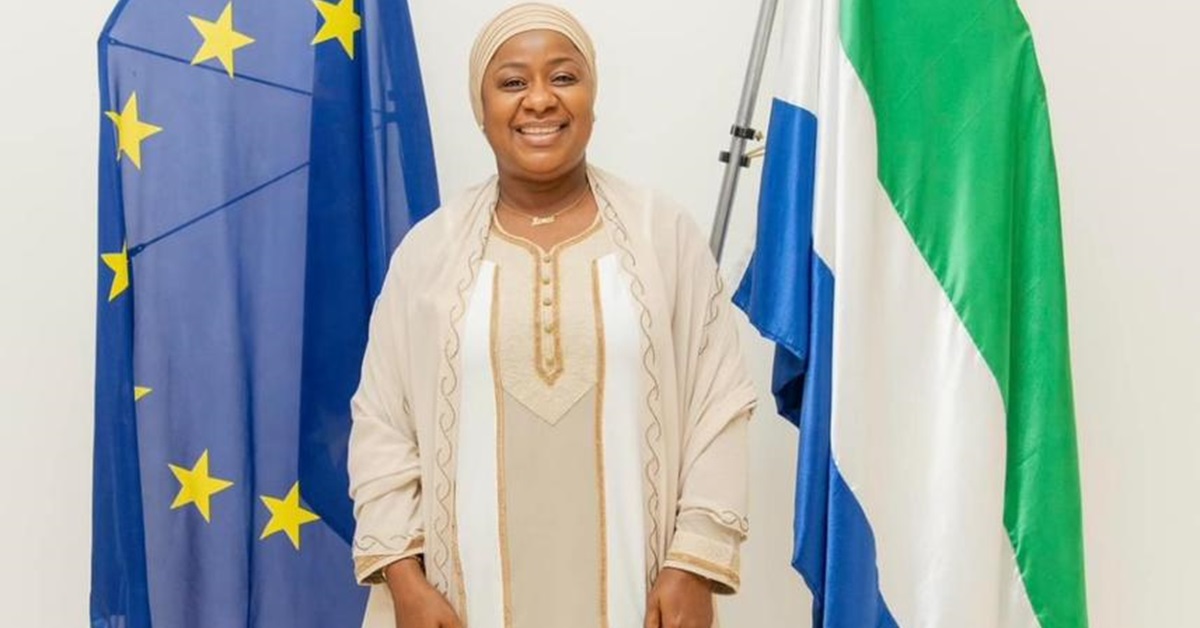Asmaa James walked into the newsroom with a sense of purpose that belied her youthful appearance.
The dim light of the early morning cast long shadows across the room, but her presence was a beacon of energy and determination. She wasn’t just another aspiring journalist; she was on a mission, though few recognized it then.
The clatter of keyboards, the hum of static from the radio equipment, the low murmur of reporters exchanging the latest gossip—all of it swirled around her, but Asmaa was focused. Her eyes scanned the headlines, her fingers traced the outline of the stories yet untold. She knew she had to make her mark, not just for herself, but for every woman who had ever been told she couldn’t.
Asmaa didn’t take the traditional path. Her rise through the ranks of Sierra Leone’s media was anything but ordinary. She navigated a landscape riddled with scandal, political intrigue, gender bias, and societal expectations, yet she remained undeterred. She started small, with stories that seemed insignificant at first—community issues, local disputes—but they were the stories that mattered to the people. They were the stories that began to shape her reputation.
In those early years, Asmaa moved with a quiet confidence that intrigued her colleagues. She was tireless, often the first to arrive and the last to leave, always chasing the truth. The truth, she believed, was the foundation upon which she would build her career.
And build she did.
It wasn’t long before the higher-ups noticed her. The stories she broke began to rattle the establishment, exposing the undercurrents of corruption and injustice that many had chosen to ignore. But Asmaa didn’t ignore them. She leaned into them, digging deeper, aggressively asking the questions others were too afraid to voice.
Her ascent to the role of station manager at 98.1 FM Radio Democracy was not handed to her; she earned it, piece by piece, with every late night, every hard-hitting interview, every relentless pursuit of the facts. Under her leadership, the station became more than just a news outlet; it became a lifeline for the nation, a place where truth was sacred and democracy had a voice and the most listened to in Sierra Leone.
Asmaa’s reputation grew beyond the borders of Sierra Leone. The world took notice. Her name began to appear in international circles, culminating in her recognition as one of the BBC’s 100 most influential women. But this was more than just an accolade—it was a validation of her life’s work. She had come, she had seen, and she had conquered the media landscape, turning it on its head, bending it to her will with the sheer force of her intellect and integrity.
But Asmaa James wasn’t done. She knew that power, true power, lay not just in influence but in action. The Black Tuesday Movement was born out of this belief, a movement that gripped the nation in its moral outrage and demand for justice. Every Tuesday, dressed in black, she led a silent army—a protest against the violence that plagued her country’s women and girls. It was a movement that did not shout, but whispered truths so profound that they echoed in the halls of power.
It was not too long that she decided to rise to the occasion and established the first female owned radio station in the country Rise radio an epitome of convergence radio broadcast laced with live streaming and multi media newscast.
And then, when it seemed she had reached the pinnacle of her career, Asmaa took on a new challenge. Her appointment as Sierra Leone’s Deputy Ambassador to Brussels was a different kind of battlefield. This was not about headlines or airtime; it was about diplomacy, strategy, and representing her nation on the global stage. Yet, in this new role, the essence of Asmaa James remained unchanged. She was still the same woman who had walked into that newsroom years ago, with a fire in her heart and a mission in her soul now stepping in to the diplomatic arena with the same fire ever blazing.
Asmaa James had conquered the media, but her story was far from over. She had become a living legend, a force to be reckoned with in both the public and private sectors. She had seen the world for what it was, with all its flaws and injustices, and she had faced it head-on. She was not just a journalist, not just an advocate, not just a diplomat—she was a warrior, armed with the truth, and the world would never be the same for it.











